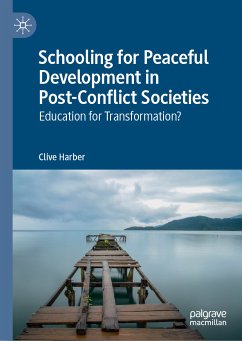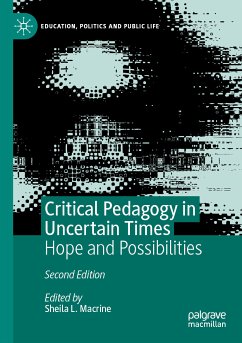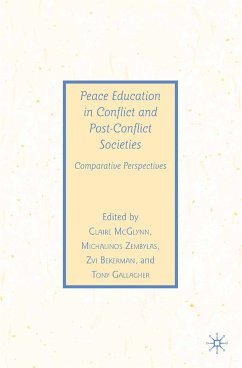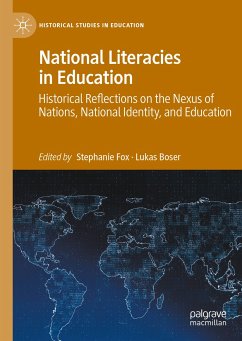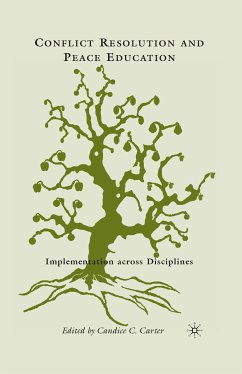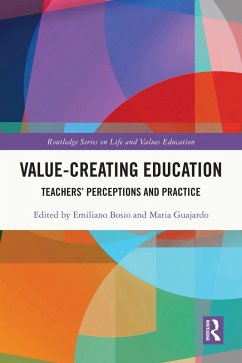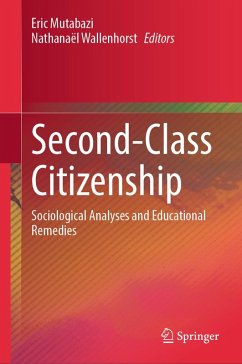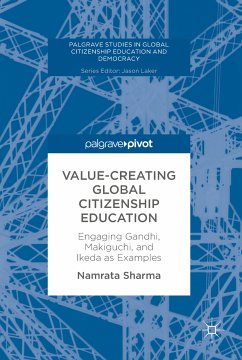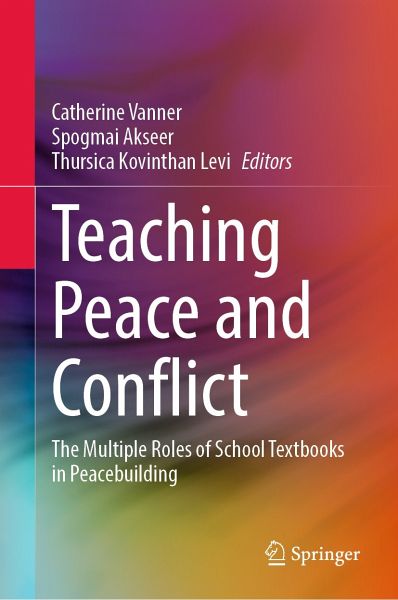
Teaching Peace and Conflict (eBook, PDF)
The Multiple Roles of School Textbooks in Peacebuilding
Redaktion: Vanner, Catherine; Kovinthan Levi, Thursica; Akseer, Spogmai
Versandkostenfrei!
Sofort per Download lieferbar
Statt: 139,09 €**
96,95 €
inkl. MwSt.
**Preis der gedruckten Ausgabe (Gebundenes Buch)
Alle Infos zum eBook verschenkenWeitere Ausgaben:

PAYBACK Punkte
48 °P sammeln!
This book illustrates the multiple roles of textbooks as victim, transformer, and accomplice to conflict by introducing the Intersecting Roles of Education in Conflict (IREC) framework for use in the research, development, production, distribution, and dissemination of textbooks and learning materials. The framework illustrates these three potentially overlapping roles by mapping the complex educational contexts of conflict-affected societies and considering how textbooks, learning materials, and education systems more broadly may simultaneously operate within these various roles. Country case...
This book illustrates the multiple roles of textbooks as victim, transformer, and accomplice to conflict by introducing the Intersecting Roles of Education in Conflict (IREC) framework for use in the research, development, production, distribution, and dissemination of textbooks and learning materials. The framework illustrates these three potentially overlapping roles by mapping the complex educational contexts of conflict-affected societies and considering how textbooks, learning materials, and education systems more broadly may simultaneously operate within these various roles. Country case studies from Asia, Europe, Africa, and the Middle East are used to analyze primary and secondary school textbook development, content, and application from a variety of approaches that articulate conflict as protracted and/or socio-political violence. The breadth of case studies shows how conflict discourse circulates in educational systems and materials in a wide range of contexts, indicatingthat the complexity of the relationship between textbooks and conflict is not unique to one culture, geographic region, or type of conflict.
Dieser Download kann aus rechtlichen Gründen nur mit Rechnungsadresse in A, B, BG, CY, CZ, D, DK, EW, E, FIN, F, GR, HR, H, IRL, I, LT, L, LR, M, NL, PL, P, R, S, SLO, SK ausgeliefert werden.



